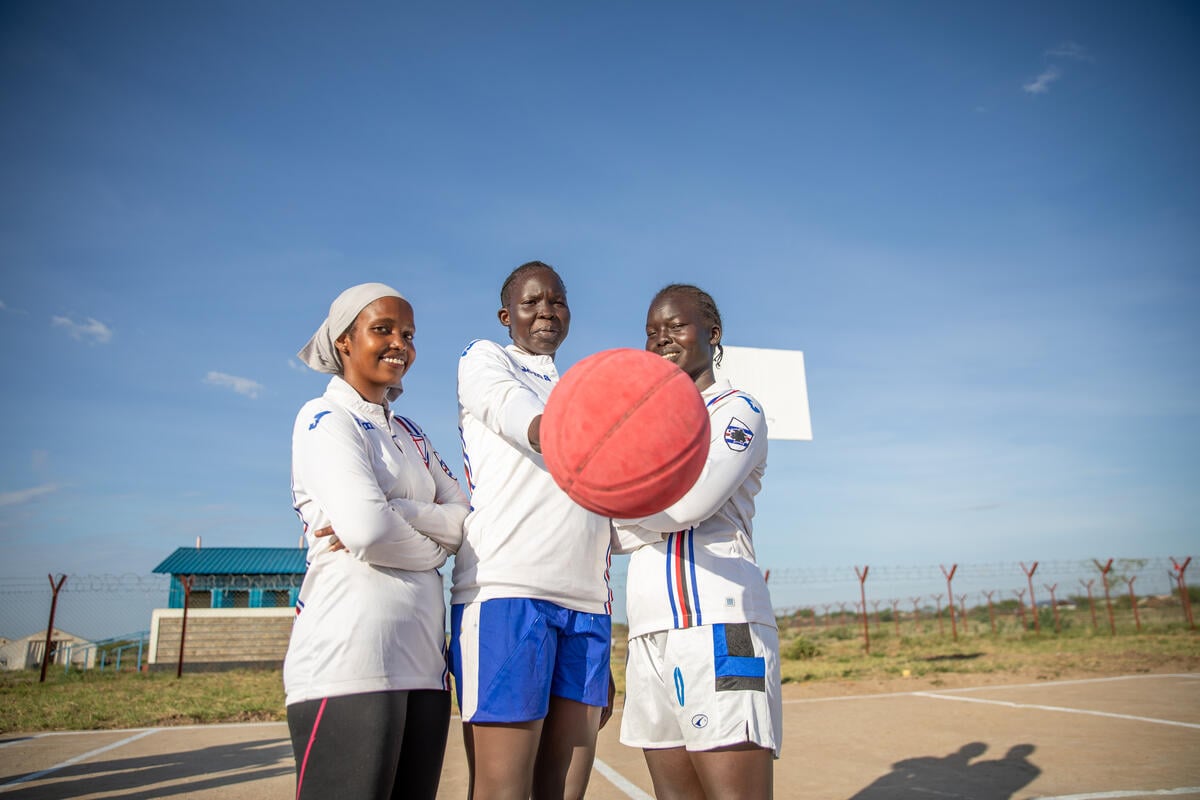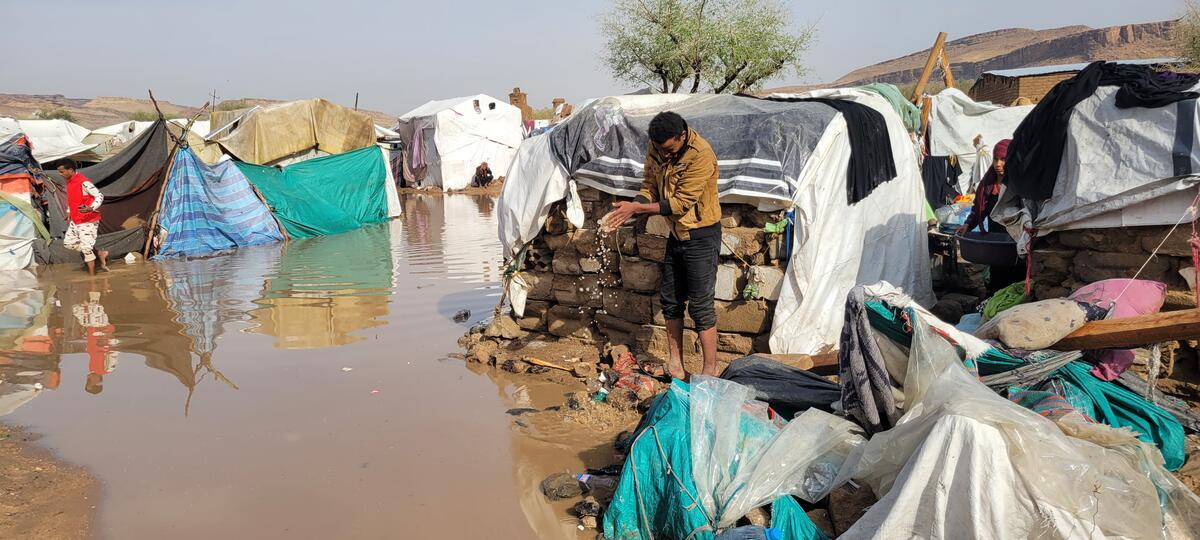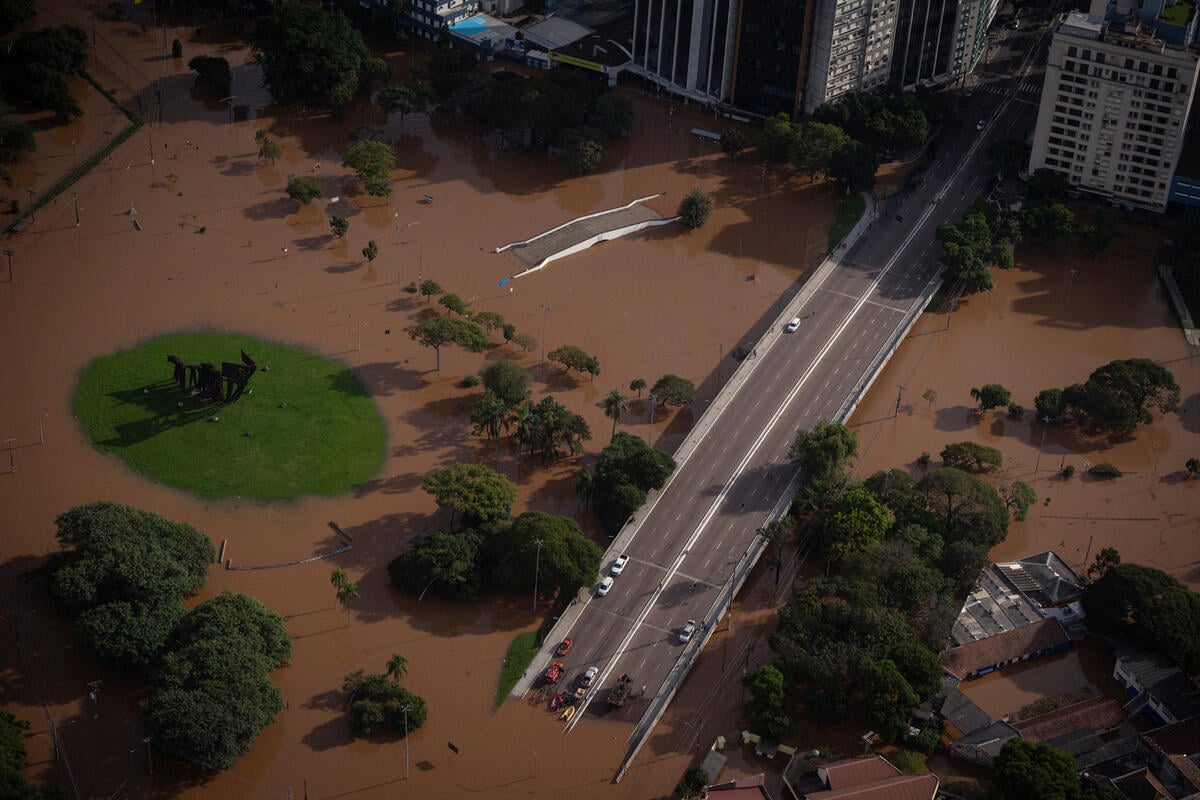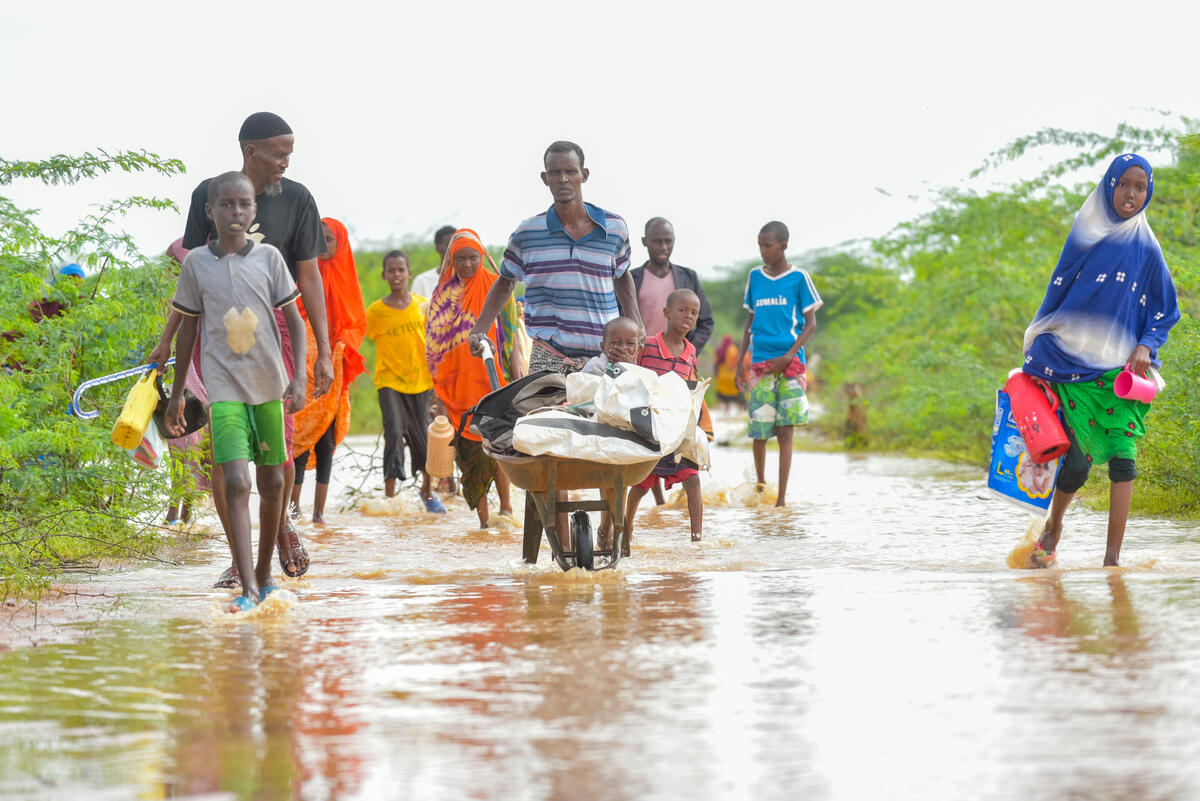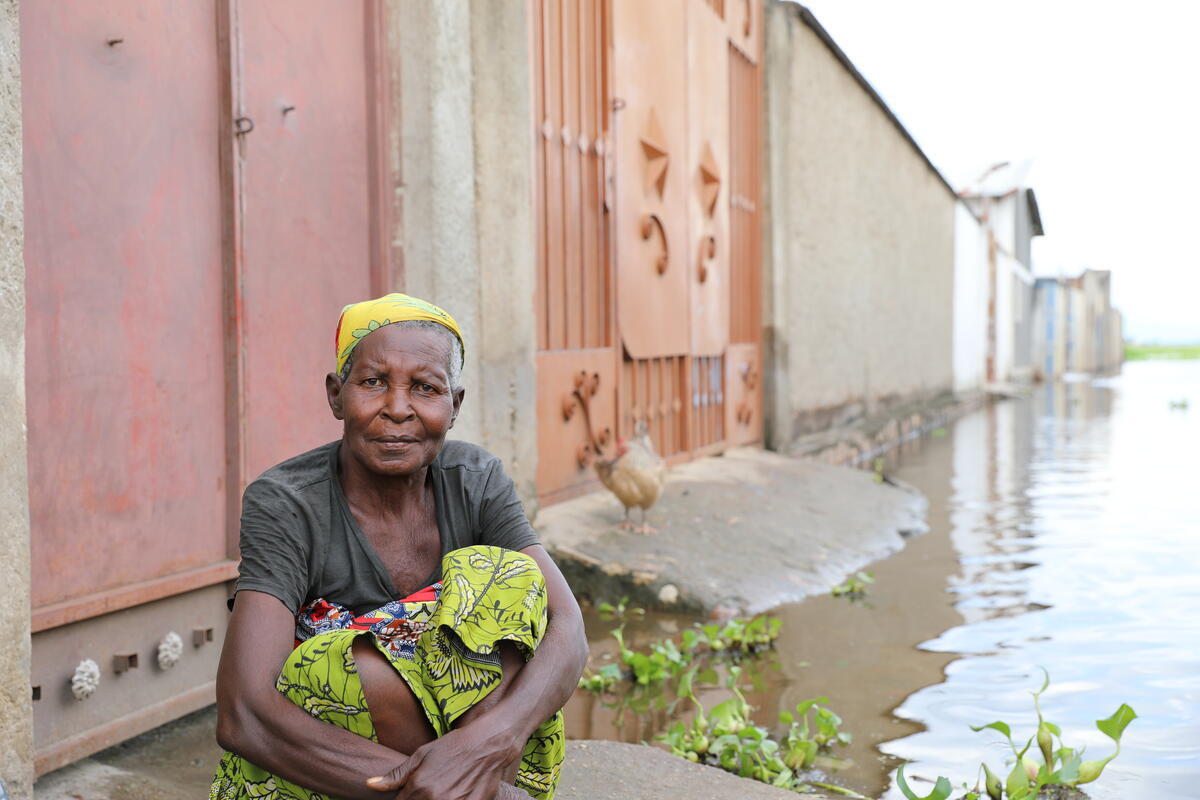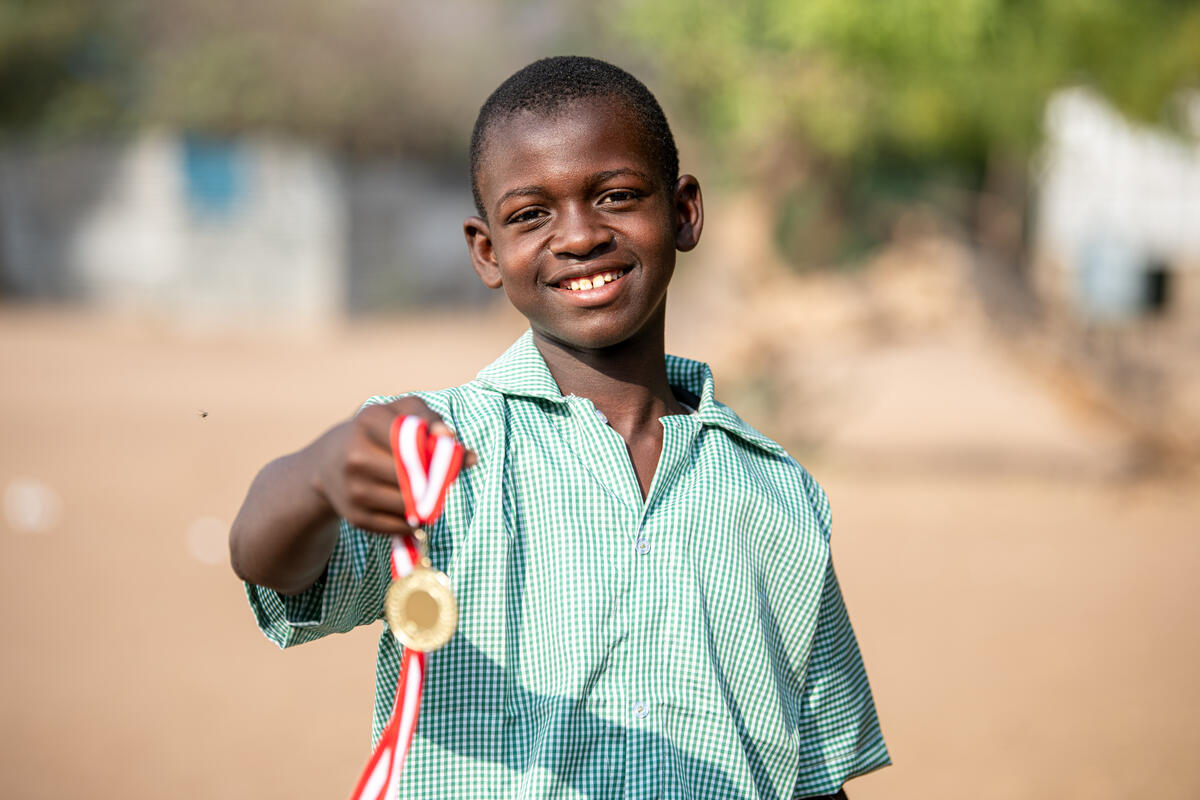Somalia: Inter-agency UN team finds displaced living in extremely harsh conditions
Somalia: Inter-agency UN team finds displaced living in extremely harsh conditions
A UN inter-agency team which travelled over the weekend to Afgooye, a small town west of Mogadishu, found thousands of newly displaced Somalis living in extremely harsh conditions. During the last week, 15 new makeshift settlements have mushroomed along the road between Mogadishu and Afgooye, bringing to 50 the total number of spontaneous camps lining the route. Some 35 new settlements had sprung up following earlier population movements from Mogadishu.
Saturday's evaluation mission, which was led by UNHCR, found that in some places, the settlement population had more than doubled, putting further strain on scant resources and facilities around Afgooye. In general, newly displaced families have joined relatives who had fled earlier in the year to Afgooye. Entire families are now crammed into tiny huts.
The flare-up in fighting between insurgents and Ethiopian forces in Mogadishu nearly a week ago has displaced an estimated 90,000 people - more than half of them to Afgooye. According to figures collected by a network of partners, some 58,000 people moved to Lower Shabelle, including 47,000 in Afgooye, while another 8,000 moved to Middle Shabelle. Some 5,700 travelled to Baidoa, 250 km north-west of Mogadishu. Another 17,000 people moved to safer neighbourhoods within the capital.
The UN inter-agency team found that in one settlement near Afgooye, the 13,000 people living there for the last few months had been joined last week by another 7,000 displaced Somalis. More people continued arrive in the already fragile site. Another site with 10,000 internally displaced people (IDPs) received 2,000 more over the past week. The IDP settlements are now taxing the resources of neighbouring villages, which are also experiencing difficulties similar to those of the IDPs.
Some of the basic infrastructure set up in settlements in and around Afgooye can no longer meet the needs of the large numbers of new IDPs. Water distribution systems need to be expanded and some water tanks are in urgent need of repair. According to the inter-agency team, even though water is being trucked daily to the settlements, supplies cannot meet the increasing demand. Health centres also need to be strengthened to cope with the spike in the population in and around Afgooye. Hygiene remains poor in the crowded settlements raising fears of an outbreak of cholera. There are also concerns about the nutritional status of young children. The UN team on Saturday visited a therapeutic feeding centre with some 50 malnourished children, some of them too weak to cry. Leaders in some of the settlements also reported several cases of rape and called for improved security and protection of the IDPs.
Despite a lull in fighting since last week, sporadic gun battles have been reported. There are also reports of Ethiopian troop reinforcements being deployed in Mogadishu. Small numbers of people can still be seen leaving the city daily, although the pace of departures has declined over the last few days.
UNHCR has already distributed aid to 78,000 people in Afgooye this year, and is currently preparing other distributions along with other agencies.

